Caring for Marissa
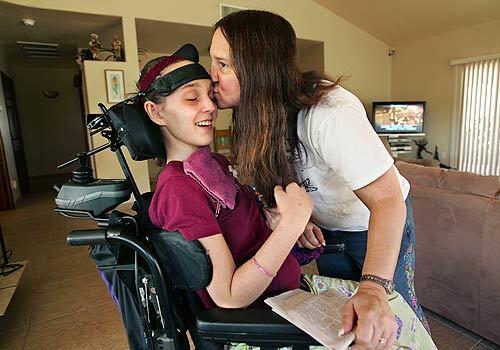
Lisa Sternberg gives a good-morning kiss to her daughter, Marissa, 23. In September 2003, Marissa was heading from Tucson to Denver for veterinary school, towing a U-Haul trailer behind her Toyota Land Cruiser. On the way, the trailer began to sway violently, and the Land Cruiser flipped, ejecting Marissa. She suffered numerous fractures as well as heart and lung damage and a severe head injury, leading to brain damage. U-Haul settled a lawsuit by her family in May 2005 without admitting liability. (Al Seib / LAT)
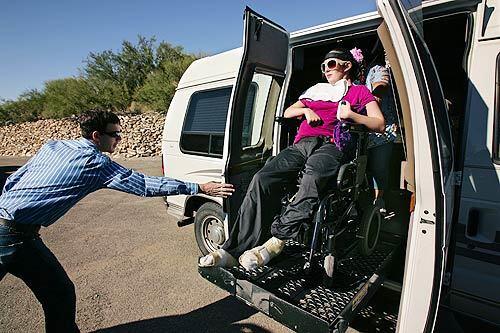
Marissas brother Aaron and caregiver Irene Valenzuela get Marissa situated in her specially equipped van to go to her physical therapy session. Doctors have told the Sternbergs the most they can expect is that Marissa will learn to follow commands. (Al Seib / LAT)
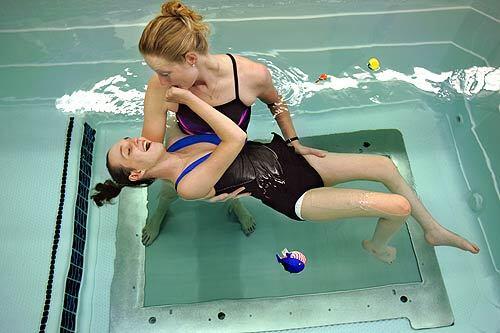
Shelley Regan helps Marissa with water therapy, designed to increase Marissas range of motion, at the Aquatic Neurological Rehab Center. The Sternbergs first took Marissa to a center in Austin, then funded construction of the center in Tucson to care for their daughter and other patients. The center has therapy pools equipped with underwater treadmills and other specialized treatments. (Al Seib / LAT)
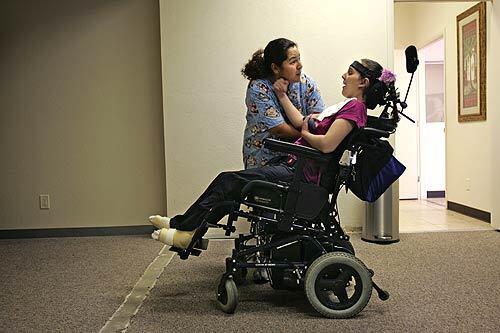
After her water therapy session, Marissa uses her clenched fist to reach out and touch caregiver Valenzuela as they wait for her speech therapy to begin. Since the weeks after the accident, she has said only an occasional word. The first one was Home. Marissa visits the Aquatic Neurological Rehab Center five days a week. (Al Seib / LAT)
Advertisement
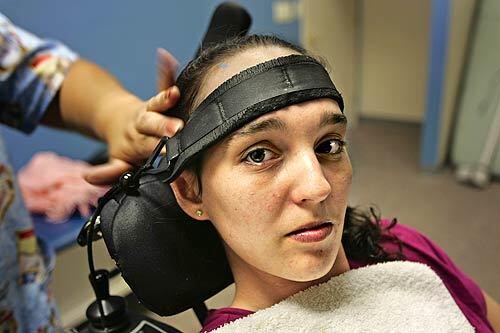
Valenzuela adjusts the support that holds Marissas head upright in her wheelchair. Marissa depends on others for all her needs, and four caregivers tend to her around the clock. In the hours after the crash that injured her, internal injuries and head trauma led to severe neurological damage. (Al Seib / LAT)
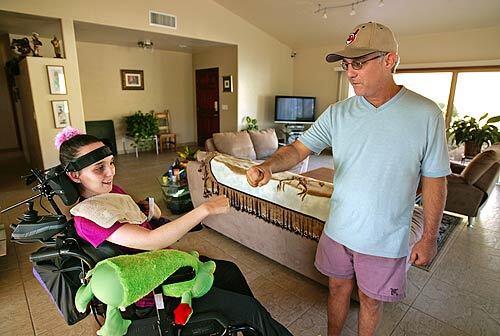
Marissa uses her clenched fist to say good morning to her father, Brian, in the house her parents built her next to theirs in the foothills of the Santa Catalina Mountains. The family has long been prominent in Tucson philanthropic circles. Im looking to make her comfortable, said Brian, 48. (Al Seib / LAT)
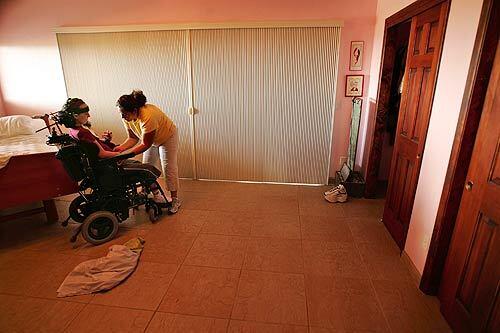
Early in the morning, in Marissas bedroom, Valenzuela adjusts a belt that holds her in her wheelchair. When she was 12, Marissa worked with disabled children in a therapeutic horseback-riding program. The crash that disabled her happened when she was 19. (Al Seib / LAT)
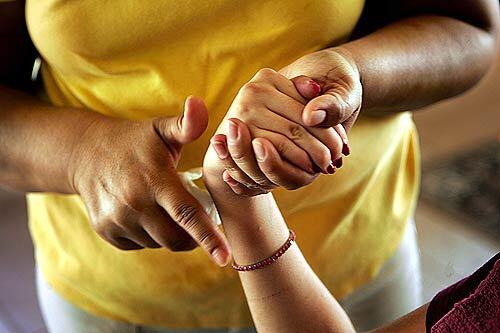
Marissa Sternberg grasps the hand of caretaker Irene Valenzuela. When her Land Cruiser flipped on the interstate in New Mexico, Marissas friend Corina Maya Hollander was driving. In the ambulance, Corina said, Marissa told her, Corina, were lucky to be alive. Were going to be fine. Were all going to be fine. By the time Marissas father reached her at the hospital, cumulative trauma had led to neurological damage and she could no longer speak. (Al Seib / LAT)
Advertisement
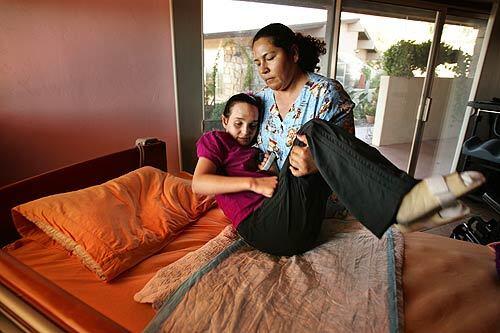
Valenzuela lifts Marissa into bed for an afternoon nap. In the Sternberg lawsuit, plaintiffs experts found the brakes were inoperable on the U-Haul trailer Marissa was towing. It had not had a thorough safety check in more than eight months, according to an inspection sticker from the company, which mandates such checks at least every 30 days. U-Haul said the trailer was improperly loaded and faulted Corina Hollanders driving. (Al Seib / LAT)
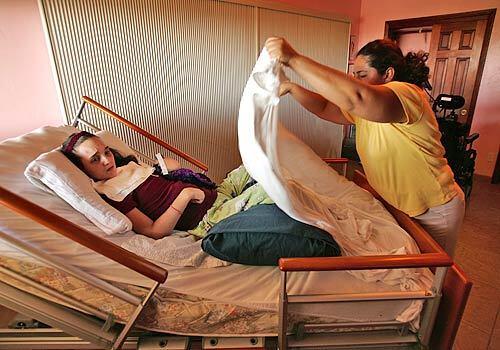
Irene Venezuela is one of four caregivers who tend to Marissa around the clock. The Sternbergs, long prominent in Tucson philanthropic circles, built a house for their daughter next door to their own. (Al Seib / LAT)
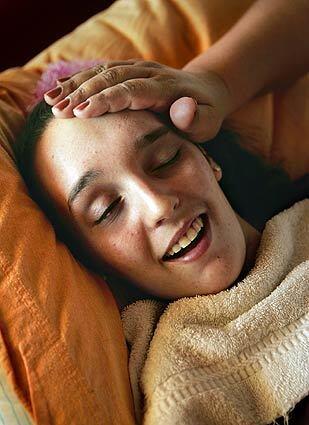
Marissas boyfriend at the time recalls that the trailer she rented was in horrible condition, with corroded springs. A U-Haul employee made some minor adjustments and sent her on her way. In an interview, U-Haul Chairman Edward J. Joe Shoen said the condition of the trailer was “totally unacceptable, whether we caused the accident or not. (Al Seib / LAT)







